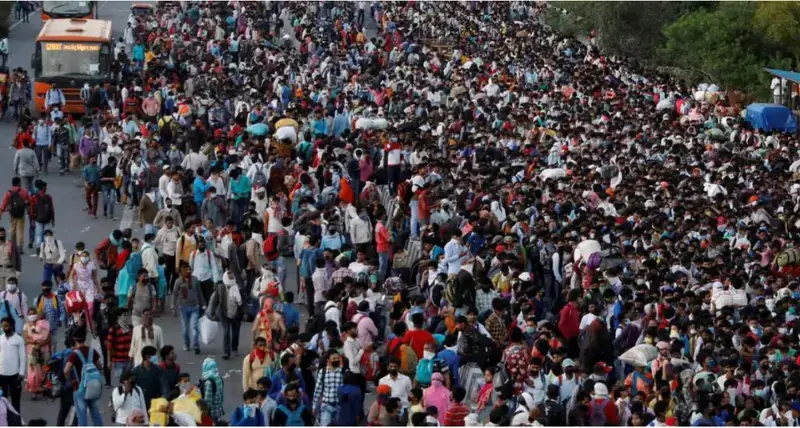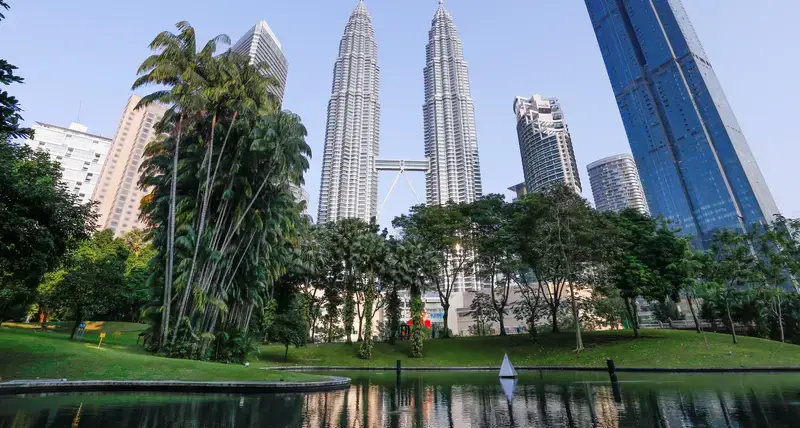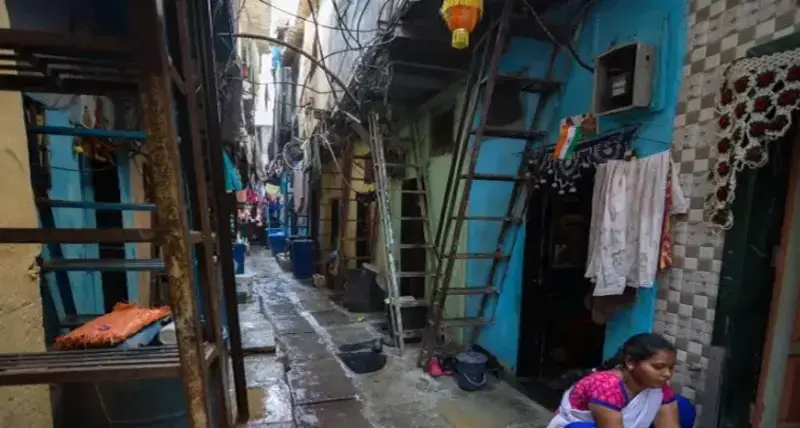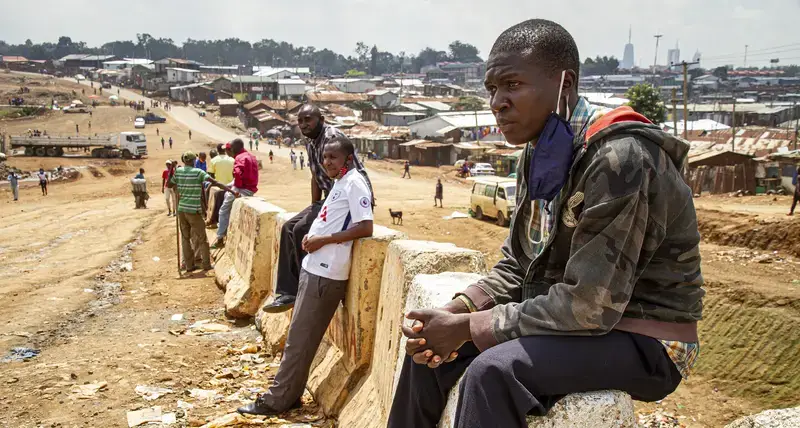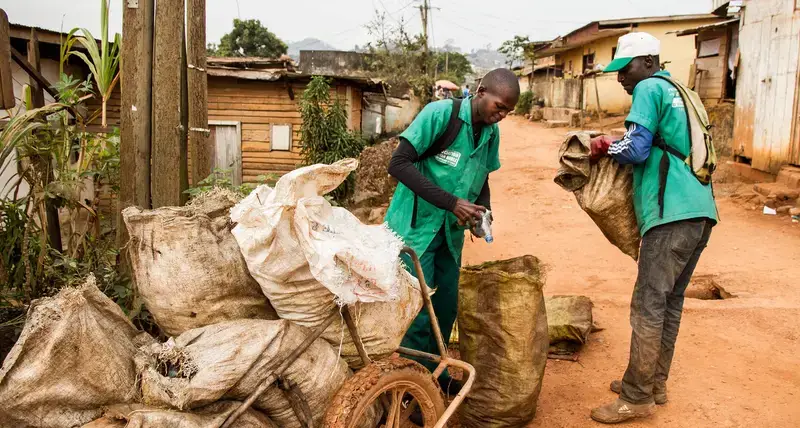In India, UN-Habitat is devising an integrated and demand-driven approach that combines refining urban planning and design frameworks, providing infrastructure upgrading policy and technical guidance, implementing pilot projects for learning-by-doing, and mainstreaming innovations through testing technology solutions to transform India’s urban landscape. UN-Habitat interventions are focused under following broad pillars -
- Safe, Inclusive, Resilient and Sustainable Cities and Regions: Improved policy frameworks focused on inclusive planning and sustainable development through effective and participatory planning instruments at the city and regional scale.
- Affordable, Green, and Resilient Housing Environment: Design tools and mechanisms to promote social housing with a focus on energy efficiency and effective waste management strategies.
- Promote Safe, Well Planned and Serviced Neighborhoods: Promote secure and safe livelihoods to enable sustained economic and social mobility. Integrate smart technology and participatory models to improve service delivery for all at the neighborhood scale.
- Accountable and Efficient Urban Governance: Strengthen planning, financing, service delivery and monitoring mechanisms to ensure sustained universal access to basic services and resilient livelihoods.
- Knowledge Systematization and Learning: Develop capacities and share technical expertise to empower local city authorities to effectively and efficiently mainstream SDG-11 and its linkages in the national and local urban agenda the needs and expectations of citizens.
Country: Overview
Country: Overview
Country: Overview
Impact
Country: Impact and Urban Numbers
Supported Ministry of Housing and Urban Affairs, Government of India, in championing India’s urbanization agenda, through “India Habitat III National Report”
National Urban Policy Framework (NUPF) in India
Urban numbers
Country: Impact and Urban Numbers
An estimated 180 million rural people live next to India’s 70 largest urban centers, a number that will increase to about 210 million by 2030
By 2030, 60 million residents will reside in Indian cities and there will have to be one Chicago built every year.
Challenges
India has one of the largest urban populations in the world, consisting of more than 377 million spread across 6,166 metropolises/ urban towns out of a total 7,935 towns in the country according to the 2011 Census. By 2030, more than half of India’s population will be living in cities, and the number of megacities will increase from five to seven or more. Additionally, the United Nations estimate that much of the population increase in India between 2015 and 2030 will take place in urban areas which will add around 164 million people to its urban base.
India is at a critical moment where it can preserve and build on the reforms and economic gains, however, it requires substantial capacity and handholding support to strengthen institutional structures at the local level. Need to equip local governments/ utilities with necessary tools to successfully translate governance principles to a local level so as to leapfrog towards a sustainable and inclusive urbanization as well as positioning India at regional and global level.
Donors and partners
UN-Habitat India is working closely with its key partners, i.e., national governments, local authorities, non-governmental organizations and private sector organizations to strengthen its catalytic role in the monitoring, evaluation and implementation of the New Urban Agenda. The ultimate objective is to increase the number of partners and networks engaged in supporting the implementation of the sustainable urbanization agenda at the national and sub-national levels in India through policy, advocacy and institutional capacity building. Therefore, strategic partnerships is mainstreamed as a key enabler across all five focus areas of the strategic plan.
Donors
Contact
Legacy content
- Total value of UN-Habitat investments (2008-2015): US$ 808,851
- Total number of UN-Habitat projects (2008-2015): 6 projects
- Main donors: BASF Social Foundation, Germany and United Nations International Strategy for Disaster Reduction (UNISDR). The government of India is also the donor for the UN-Habitat Information and Dissemination Office in Chennai, India.
- Implementing partners: UN-Habitat has worked in India with the District Administration and Municipal Council of Cuddalore, and with NGOs in the field of water and sanitation, disabilities and gender empowerment.
General information
Capital: New Delhi
Major cities: The major cities of India are Mumbai, Delhi, Bangalore, Kolkata, Chennai, Ahmedabad, Hyderabad, Pune, Surat, Kanpur.
- Population (billion): 1.237
- GDP: US$ 1.842
- GDP growth at constant 2005 prices: 6.9%
- Urban population: 31.6%
- Population growth rate (average annual %): 1.3%
- Urban population growth rate (average annual %): 2.5%
- Rural population growth rate (average annual %): 0.8%
Source: UN-data 2013
UN-Habitat’s projects in India have been mainly focusing on in urban basic services,in different states. But the Agency decided in 2015 to resume cooperation with the Government of India and to promote a new era of partnership. A Senior Officer has been appointed to India mid-2015. Full support to position the Government vis-à-vis the Habitat-III process and the new Urban SDG has been provided. A global MoU will soon be signed with the Government, in which a National Office in New Delhi -- in lieu of the Chennai office whose functions were only for information/communication -- would be supported by the central government. New areas of technical cooperation will include Housing, Urban Development, Slum Upgrading and Prevention, Urban Employment and Urban Poverty Alleviation. The Agency is now associated with key flagship Programmes such as Smart Cities Mission and Housing for All. Cooperation agreements could be signed in terms of building data for cities, urban planning for city leaders, ‘in-situ’ slum redevelopment, etc.
UN-Habitat projects in India
Public Space in M Ward, Mumbai
This project is located in M Ward - a densley populated area with minimal public spaces in Mumbai. The site is a neglected public space that serves 200,000 people. The project involves upgrading and renovating the garden with lanscaping, new play and exercise equipment, provision of water and fencing.
Project Duration: 2014 - 2015
Value USD: 100,000
Donor: Mojang
Implementing Partners: Mumbai Environmental Social Network (MESN), Mumbai Metropolitan Corporation (MMC)
Gautam Nagar, Mumbai, India
Gautam Nagar is a major Resettlement and Rehabilitation (R&R) colony in North Govandi, Mumbai. It houses people who have been displaced by major infrastructure development projects in Mumbai. Existing open areas between and around the buildings, including the main streets lined with shops, are considered public space but are currently serving as household garbage dumps. The project will establish a joint public-private accountability system for management and maintenance of public spaces and public infrastructure in R&R colonies; develop the capacity of local institutions in financial and operational management and maintenance; establish a stronger sense of ownership among residents for shared spaces and facilities; and thus improve the state of health and hygiene in R&R colonies. It will also upgrading existing public spaces and amenities to adequately serve the recreational, social, environmental and economic needs of the residents and upgrade the design standards of R&R colonies.
Project Duration: 2015 - ongoing
Value USD: 100,000
Donor: Mojang
Implementing Partners: Mumbai Environmental Social Network (MESN), Mumbai Metropolitan Corporation (MMC)
Developing high quality public spaces in Pune
Pune, the ninth largest city in India, has experienced extremely rapid industrial and economic growth and a large migration-led population increase during the past decade. Due to lack of adequate spaces to carry out their work, waste collectors often sort the waste in public spaces such as streets, sidewalks and squares. This project seeks to develop high quality public spaces around the waste sorting centres and collection points as well as formalize procedures for public space maintenance.
Project Duration: 2015 - ongoing
Value USD: 21,000
Implementing Partners: Pune Municipal Corporation and, Seva Sahakari Sanstha Maryadit (SWaCH), a grassroots waste picker organisation
Public Space
One public space pilot site was completed in Lotus Gardens, Mumbai in 2014. Two additional sites have been selected, one in Mumbai and another in Pune. UN-Habitat is also in discussion with UNESCO and the National Heritage City Development and Augmentation Yojana in India to work on select public space sites. Additional work in India has resulted in the development of a Concept Note for 100 Smart Cities in India, and another on Planning Vulnerable Cities in India. In Delhi, a River front development project is under consideration. Further, there are on-going discussions with GEF and UNIDO to collaborate on developing planning tools and instruments for sustainable urban development.
Project Duration: 2016
Value USD: 100,000 per site
Donor: Mojang
Implementing Partners: MESN
Urban Youth Fund in India
In India, the India window of the Urban Youth Fund was set up in partnership with the Narotam Sekhsaria Foundation (NSF). A total of 15 youth-led organizations have been provided with funds to undertake youth-led activities. A monitoring and evaluation exercise was undertaken in all the project activity areas. In 2014, NSF granted additional funding to five youth organizations to carry out youth-led development activities in their communities. These new organizations have undergone project management training.
- Duration: April 2012 – April 2016
- Donor: Narotam Sekhsaria Foundation, India
- Value: USD315,000
- Implementing partners: Narotam Sekhsria Foundation, 15 youth-led organizations
Promoting Urban Low Emission Development Strategies (Urban LEDS)
The project was initiated to support innovative strategies in addressing the urban dimension of climate change in cities in emerging economies. The objective of the Project was to enhance the transition to low emission urban development. In India, it supported two Model Cities, Rajkot and Thane, and to a lesser extent the six Satellite Cities of Coimbatore, Gwalior, Nagpur, Panaji, Pimpri-Chinchwad and Shimla, in their transition to climate friendly low carbon development. The project supported the cities in developing LEDS strategies, various training activities were undertaken in the cities on innovative tools for climate change planning, and Thane and Rajkot completed GHG inventories. In Panaji, UN-Habitat created synergies with its urban planning work and helped integrate the climate change strategy within the urban development plan.
-
1 March 2012 – 31 March 2016
-
Value :€ 6.700.000 (Multi-country)
- Donor:European Commission
- Implementing Partners:National government, respective local governments, ICLEI
- For more information,please click here.
State of the Region's Cities Reports Series
- January 2015 – July 2017
- Value: US$ 100,000
Post-Tsunami Water and Sanitation Reconstruction in Cuddalore, India
This project is located in Tamil Nadu, India. The project is to assist Tsunami affected families in 7 settlements that do not have access to safe drinking water and sanitation in Cuddalore District of Tamil Nadu, India. The project assists up to 10,000 people, including children, women, men and up to 2,000 people with disabilities gain access to improved sources of water supply and sanitation.
- December 2008 - December 2012
- Value: US$ 296,584
- Donor: BASF Social Foundation
- Implementing partners: District Administration and Municipal Council of Cuddalore, and NGOs in the field of water and sanitation, disabilities and gender empowerment
Water and Sanitation Trust Fund - BASF Social Foundation
BASF Social Foundation Contribution for WATSAN education in Mangalore, India.
- January 2011 - December 2012
- Value: US$ 195,659
- Donor: BASF Social Foundation
Standardised tools and methodologies for safer schools and hospitals
This project covered India, Nepal and Pakistan. With a view to contribute to localizing Hyogo Framework for Action (HFA), as requested by UNISDR Asia-Pacific Secretariat, under the World Bank's Global Facility for Disaster Risk Reduction (GFDRR), UN-Habitat Bangkok, a sub-office to ROAP, a standardized Tool Kit, which facilitates assessment of the safety of critical infrastructure, focusing on schools and hospitals in South Asia was developed. The Tools provides a concrete set of recommendations for those local authorities, which have signed up for the Resilient Cities Campaign.
- October 2011 - March 2012
- Value: US$ 26,667
- Donor: United Nations International Strategy for Disaster Reduction (UNISDR)
- UNISDR, Nepal Risk Reduction Consortium (NRRC), Donors, UNESCO Pakistan, UNDP India, South Asian Association for Regional Cooperation (SAARC)
Enabling Access of Koshi Flood Affected People to Water and Sanitation Facilities in Bihar-India and Sunsari District - Nepal
The location of this project is Madhepura District of Bihar in India and Sunsari District in Nepal. The project assisted flood affected families with access to safe drinking water and sanitation, after a breach that occurred in the eastern embankment of a barrage constructed to regulate the flow of Koshi River on 18 August 2008, affecting 3,345,545 people in about 3,000sq km of land in Bihar (India) and Sunsari (Nepal).
- December 2009 - December 2012
- Value: US$ 72,500
- Donor: BASF Social Foundation, Germany
UN-Habitat Information and Dissemination Office, India
The UN-Habitat Information and Dissemination Office was located in Chennai, India until December 2015. The objective of the Chennai Office in India was to provide support to the dissemination of UN-Habitat publications in India, raise awareness of urban issues in India through organization of World Habitat Day events, maintain a list of partners in India to support marketing and increased participation of Indian partners in UN-Habitat's key events, and improve knowledge exchange through the library maintained by the office.
- January 2010 - December 2015
- Value: US$ 117,441
- Donor: Government of India
Images

